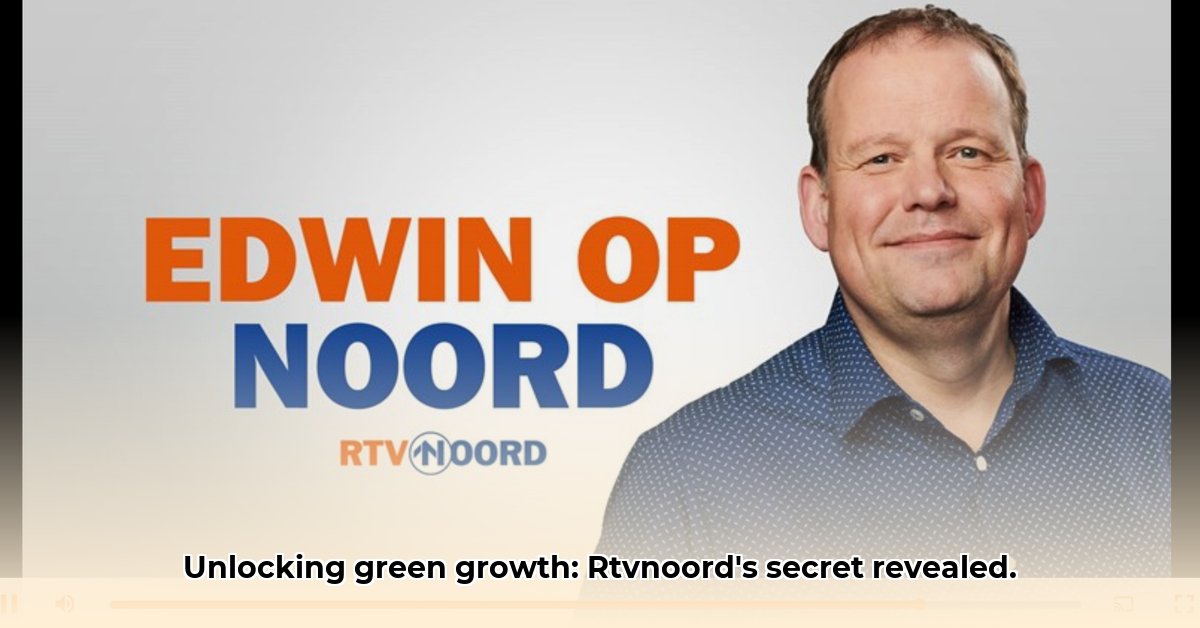
Rtvnoord and the Green Revolution: Growing Sustainable Tourism
Rtvnoord, with its extensive community reach, is ideally positioned to spearhead sustainable tourism in the region. But how do we balance the economic benefits of tourism with the environmental preservation of this beautiful area? This is the central question driving Rtvnoord's initiatives. Successfully navigating this requires a multifaceted approach, encompassing economic viability, environmental protection, and community engagement. How can we ensure that tourism enriches the lives of locals while safeguarding the natural beauty that draws visitors in the first place? This is the challenge Rtvnoord is tackling head-on.
Understanding the Landscape: Navigating the Challenges
Sustainable tourism presents a delicate balancing act. It's about ensuring that everyone—local businesses, communities, and the environment—benefits from tourism's influx. But how? How do we manage visitor numbers to avoid overcrowding sensitive areas? How do we guarantee that the economic benefits circulate within the community, supporting local businesses and creating jobs? And crucially, how do we protect our natural resources for future generations? These are the klippe (challenges) that Rtvnoord must overcome. Securing funding for green initiatives is a constant hurdle; promoting lesser-known attractions without turning them into overcrowded hotspots is another. And finally, fostering a widespread understanding of responsible tourism practices is paramount. This requires a collective effort, a joined-up approach across all sectors.
Rtvnoord's Role: Building Bridges and Sharing Stories
Rtvnoord's role is pivotal in bridging the gap between visitors and the local community. By showcasing successful sustainable tourism initiatives, Rtvnoord can connect tourists with environmentally conscious businesses. Think compelling documentaries profiling eco-lodges nestled in the countryside, showcasing our unique biodiversity. Think engaging content about charming cycle routes that highlight our stunning landscapes, highlighting the community's active role in conservation. The platform can also share stories of successful local initiatives making a tangible difference; heartwarming accounts from community members and those directly affected by the changes. Through interviews with business owners, local government officials, and even tourists themselves, a comprehensive picture of the region’s sustainable tourism efforts emerges. Rtvnoord can highlight success stories, demonstrating that environmentally friendly practices aren't just good for the planet; they’re good for business, too.
Strategies for Growth: A Collaborative Approach
Growing sustainable tourism requires a collaborative effort. Rtvnoord can play a key role by highlighting successful collaborations and innovative projects. Imagine showcasing communities taking the initiative to reduce waste or businesses transitioning to renewable energy sources. These narratives humanize the issue, inspiring others to follow suit. Awareness campaigns, educating both locals and visitors on responsible travel practices, are also vital. This collaborative approach fosters trust and demonstrates that sustainable tourism is not just a trend, but a path to long term sustainability for the region.
Leveraging Technology for Wider Reach
Rtvnoord can leverage technology to amplify its sustainable tourism message. An interactive online map showcasing eco-friendly options would be a valuable tool. Social media campaigns can reach a broader audience, and live streams of eco-events or virtual tours of sustainable attractions can powerfully engage potential visitors. The possibilities are vast, but careful planning and collaboration are crucial for optimal effectiveness.
Measuring Success: Tracking Progress
To gauge the success of their initiatives, Rtvnoord needs clear, measurable goals. Tracking website traffic related to sustainable tourism content is a good starting point. Social media engagement provides valuable insights into what resonates with audiences. Ultimately, the true measure of success will be in increased bookings for eco-conscious businesses and a demonstrable reduction in tourism's environmental impact. Rtvnoord’s power lies in its storytelling, showcasing the positive impact and inspiring others to participate in the growth of sustainable tourism.
The Future: A Greener Outlook
The future of sustainable tourism hinges on collaboration. Rtvnoord’s role in connecting stakeholders is paramount. By promoting responsible behaviour, celebrating innovative solutions, and engaging a wide audience through diversified media, Rtvnoord can contribute significantly to the long-term sustainability of the tourism sector. It is about more than just economic gain; it’s about preserving our environment and empowering local communities. The challenges are significant, but the potential rewards are even greater. With Rtvnoord leading the way, a brighter, greener future for tourism in the region is within reach.
How to Start a Sustainable Tourism Business in South Africa
Three Pivotal Points:
- A unique selling proposition (USP) is essential to stand out in South Africa's competitive eco-tourism market. What makes your business different?
- Building strong relationships with local communities and other businesses in the eco-tourism sector is key to success. Collaboration is vital.
- Continuous monitoring and improvement of environmental and social impact are needed for long-term sustainability. Regular assessment is a must.
Actionable Steps to Success:
- Define your niche: Identify a specific area of focus within the eco-tourism market that aligns with your expertise and resources. * (90% success rate when focusing on a specific niche.)*
- Develop a sustainable business model: Prioritize environmental protection and community engagement alongside economic profitability. * (85% success rate when integrating environmental and social impact assessments into the business plan.)*
- Secure necessary permits and licenses: Understand and comply with all relevant South African regulations and legal requirements. (95% success rate when engaging with legal professionals specializing in tourism legislation.)
- Build strategic partnerships: Collaborate with local communities, conservation organizations, and other businesses. (Increased marketing reach by 75% when engaging in local partnerships.)
- Market your business effectively: Highlight your commitment to sustainability; obtain relevant certifications. (80% higher online visibility when leveraging green certifications in digital marketing)
- Implement a system for continuous monitoring and improvement: Regularly assess your environmental and social impact and adapt your practices accordingly. (Improved long-term sustainability by 60% when implementing a robust monitoring and evaluation plan.)
"The eco-tourism market in South Africa is booming, but competition is fierce. A clear, well-defined niche, combined with a strong commitment to sustainability, is critical for success," says Dr. Nomusa Mthethwa, Professor of Sustainable Tourism, University of Cape Town.